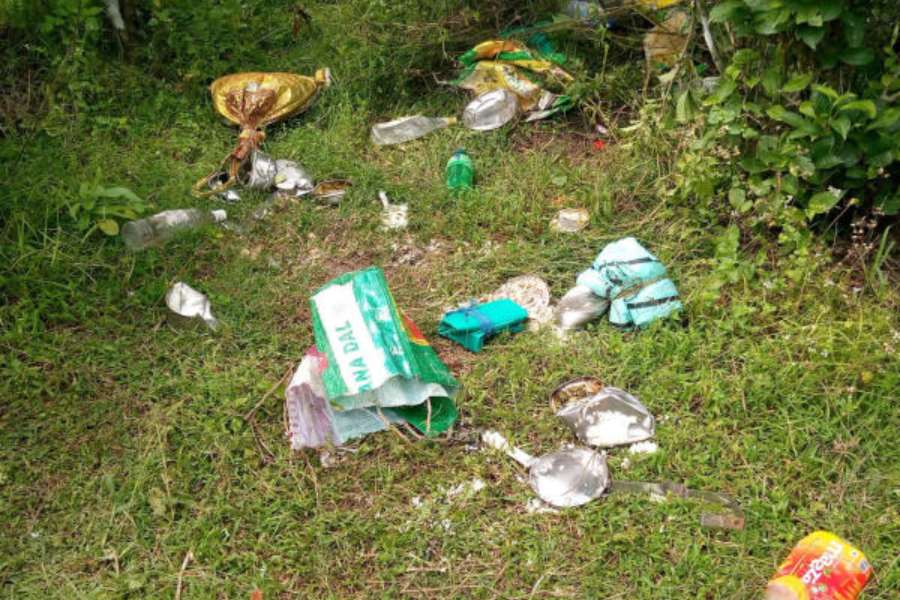A wild elephant entered the plantations of a tea estate in Jalpaiguri on Saturday, devoured the lunch of 75 workers and left the place, leaving all dumbstruck.
Sources said that 84 women workers were busy plucking tea leaves at the plantation of Bamandanga-Tondu, a tea estate located in Nagrakata block, their lunch tiffins in bags hanging from the branches of trees as is normal practice.
“Each of us carried our lunch in bags and hung the bags on trees. We were busy with our work when the elephant entered the plantation from the neighbouring Diana forest. We got frightened and moved to a safe distance, fearing attack,” said Puja Oraon, a worker. "The elephant, however, didn’t advance at us."
Instead, she recalled, it walked up to the trees and started bringing down the bags one after another with its trunk.
“We watched as the elephant, using its trunk, took out our tiffin carriers (lunchboxes) and broke them open. Then it devoured whatever food there was inside,” said Sarita Oraon, Puja's colleague.
The women raised an alert which made some male workers rush to the spot. They tried to steer the elephant back to the forest but it went from one tree to the next in search of lunchboxes.
After around 30 minutes, it went back to the forest, leaving behind the remains of the lunchboxes and water bottles.
In due course, the workers found that the elephant had consumed the lunch of around 75 workers. Only a few who kept their food in some other place could save their lunch.
“We think elephants are herbivores but this one ate everything, including pork and egg curry, as well as vegetables, lentils, rice and rotis. It seems the elephant was really hungry,” said Sumari Oraon, a worker, adding she had never seen anything like this before.
Chemically ripened fruits seized
Officials of Malda district administrations and state horticulture and food safety department on Saturday raided different areas of the district to prevent the sale of mangoes and litchis artificially ripened by calcium carbide.
“Litchis, which are still green, are being ripened by calcium carbide by some fruit sellers and being sold at Rs 100 per kilo or even higher. There has been less production of litchis in local orchards this year owing to inclement weather. But using chemicals to ripen fruit affects people's health,” said Uzzal Saha, secretary, Malda Mango Merchants' Association.
Samanta Layek, an official of the horticulture department, said calcium carbide was toxic and posed a severe health risk.
Administrative sources said around 15kg of litchis and 22kg of mangoes ripened by using carbide were seized on Saturday.
Sources said that this drive would continue.











